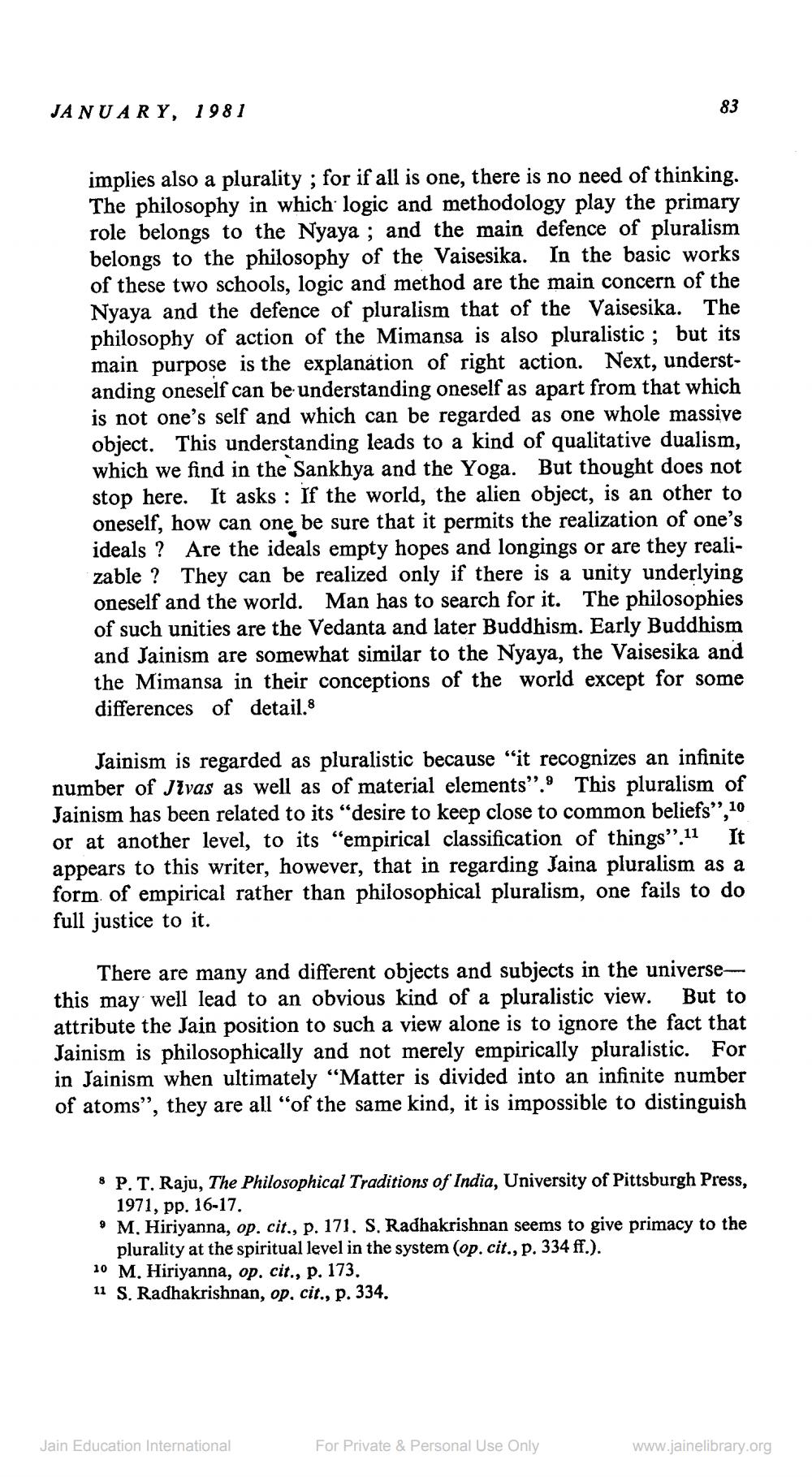Book Title: Jain Journal 1981 01 Author(s): Jain Bhawan Publication Publisher: Jain Bhawan Publication View full book textPage 6
________________ JANUARY, 1981 83 implies also a plurality; for if all is one, there is no need of thinking. The philosophy in which logic and methodology play the primary role belongs to the Nyaya ; and the main defence of pluralism belongs to the philosophy of the Vaisesika. In the basic works of these two schools, logic and method are the main concern of the Nyaya and the defence of pluralism that of the Vaisesika. The philosophy of action of the Mimansa is also pluralistic ; but its main purpose is the explanation of right action. Next, understanding oneself can be understanding oneself as apart from that which is not one's self and which can be regarded as one whole massive object. This understanding leads to a kind of qualitative dualism, which we find in the Sankhya and the Yoga. But thought does not stop here. It asks : If the world, the alien object, is an other to oneself, how can one be sure that it permits the realization of one's ideals ? Are the ideals empty hopes and longings or are they realizable? They can be realized only if there is a unity underlying oneself and the world. Man has to search for it. The philosophies of such unities are the Vedanta and later Buddhism. Early Buddhism and Jainism are somewhat similar to the Nyaya, the Vaisesika and the Mimansa in their conceptions of the world except for some differences of detail. 8 Jainism is regarded as pluralistic because "it recognizes an infinite number of Jivas as well as of material elements”.9 This pluralism of Jainism has been related to its “desire to keep close to common beliefs”, 10 or at another level, to its “empirical classification of things” 11 It appears to this writer, however, that in regarding Jaina pluralism as a form of empirical rather than philosophical pluralism, one fails to do full justice to it. There are many and different objects and subjects in the universe this may well lead to an obvious kind of a pluralistic view. But to attribute the Jain position to such a view alone is to ignore the fact that Jainism is philosophically and not merely empirically pluralistic. For in Jainism when ultimately “Matter is divided into an infinite number of atoms”, they are all “of the same kind, it is impossible to distinguish & P. T. Raju, The Philosophical Traditions of India, University of Pittsburgh Press, 1971, pp. 16-17. • M. Hiriyanna, op. cit., p. 171. S. Radhakrishnan seems to give primacy to the plurality at the spiritual level in the system (op. cit., p. 334 ff.). 10 M. Hiriyanna, op. cit., p. 173. 11 S. Radhakrishnan, op. cit., p. 334. Jain Education International For Private & Personal Use Only www.jainelibrary.orgPage Navigation
1 ... 4 5 6 7 8 9 10 11 12 13 14 15 16 17 18 19 20 21 22 23 24 25 26 27 28 29 30 31 32 33 34 35 36 37 38 39 40 41 42 43
